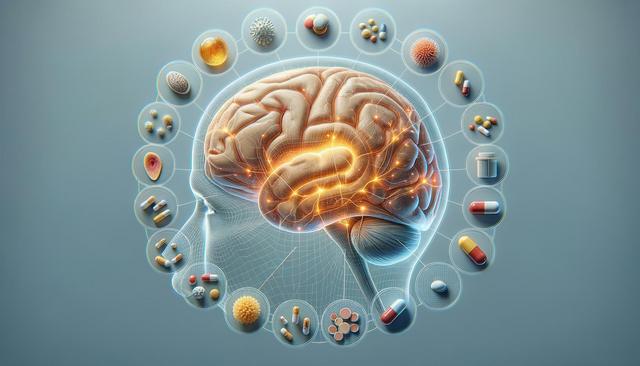Traditional Chinese Medicine: A Natural Approach to Stroke Recovery
Traditional Chinese Medicine (TCM) has long been revered for its holistic approach to health, and its potential in aiding stroke recovery is gaining attention. TCM acupuncture and herbal remedies are being explored for their ability to enhance motor function in stroke survivors. Acupuncture, which involves the insertion of fine needles into specific points on the body, is believed to stimulate the central nervous system, promoting the release of chemicals that aid in recovery. Additionally, herbal treatments are thought to improve circulation and reduce inflammation, creating a conducive environment for recovery. Recent studies have shown that incorporating TCM into recovery plans may offer positive outcomes for patients looking to regain mobility and independence.
Neurotechnology: Pioneering New Frontiers
The advancements in neurotechnology are revolutionizing the landscape of stroke recovery. One of the standout innovations is theta-burst stimulation, a form of repetitive transcranial magnetic stimulation (rTMS), which has shown promise in restoring motor functions, particularly in the arms. By delivering bursts of magnetic pulses to specific areas of the brain, this technology aims to enhance neural plasticity and facilitate recovery. Alongside theta-burst stimulation, Brain-Computer Interface (BCI)-driven electrical therapy is making waves. This cutting-edge technology enables patients to control external devices using their brain signals, offering new possibilities for regaining lost functions and improving quality of life.
Lifestyle Changes: A Powerful Ally Against Recurrence
In addition to therapeutic interventions, lifestyle modifications play a crucial role in preventing stroke recurrence. A comprehensive approach that includes dietary adjustments, regular physical activity, and stress management can significantly lower the risk of another stroke. Key lifestyle changes to consider include:
- Adopting a heart-healthy diet rich in fruits, vegetables, and whole grains.
- Engaging in regular physical exercise tailored to individual capabilities.
- Managing stress through mindfulness techniques such as meditation and yoga.
- Quitting smoking and limiting alcohol consumption.
These changes not only support recovery but also promote overall well-being, empowering stroke survivors to lead healthier lives.
Integrating Therapies: A Comprehensive Approach
For optimal recovery, integrating various therapies can create a synergistic effect that enhances the healing process. Combining traditional practices like TCM with modern neurotechnologies offers a comprehensive approach that addresses both physical and mental aspects of recovery. Patients are encouraged to work closely with a multidisciplinary team of healthcare providers who can tailor a personalized recovery plan. This collaborative approach ensures that all aspects of a patient’s needs are met, from motor function restoration to psychological support, ultimately leading to more successful outcomes.
Exploring Your Options: Empowerment in Recovery
With the continually evolving landscape of stroke recovery therapies, patients have more options than ever to explore. Whether it’s the ancient wisdom of TCM or the cutting-edge advancements in neurotechnology, each therapy offers its unique benefits. Patients are encouraged to stay informed about the latest developments and engage in discussions with their healthcare providers to find the most suitable options. By taking an active role in their recovery journey, stroke survivors can harness the power of these therapies to rebuild their lives and regain independence.
Conclusion
Stroke recovery is entering an exciting era of innovation, with a diverse range of therapies offering hope and healing. By embracing both traditional and modern approaches, patients can tailor their recovery plans to best suit their individual needs. With the right combination of therapies and lifestyle changes, stroke survivors are empowered to take charge of their recovery and improve their quality of life. As research continues to advance, the future of stroke therapy holds even more promise for those on the path to recovery.
